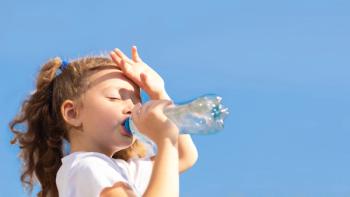
Predictions about the future of pediatrics
Who could have predicted the changes many of us have already seen during our careers as pediatricians?
Whenever I hear about people who try to predict the future, I think of the pundit who made this prediction about the stock market: It'll go up, it'll go down, but not necessarily in that order.
Who could have predicted the changes many of us have already seen during our careers as pediatricians? Theophylline and baby aspirin were among our most commonly prescribed medications. Tonsils were removed more frequently than Lady Gaga's clothes. Some of our most experienced pediatricians have seen illnesses such as measles, rheumatic fever, and epiglottitis go from devastating, feared diseases to near elimination.
Still, I am going to venture some personal speculations about how the practice of primary care pediatrics will change over the next several decades in the United States:
2. The standard of care for diagnosing otitis media will be a technologic (similar to tympanometry) and not a visual diagnosis. We'll admit out loud what we rarely say-we currently often base our diagnosis of otitis media on history rather than on objective physical findings.
3. Although breast will still be best for almost all infants, additional evidence will show that the benefit is much more marginal than we now believe. In a small percentage of infants who are genetically susceptible, there will be evidence that certain environmental toxins or immune factors that accumulate in breast milk can actually trigger developmental problems. And formula will become the norm for infants with severe cases of colic. Standard immunologic and nutritional supplements for breastfed babies will keep up with rapidly changing advances in formula, so breastfeeding will remain the general consensus first choice for almost all infants.
4. The current rush toward electronic health records (EHRs) in the primary care outpatient setting will significantly increase costs and technologic hassles, without significantly improving the overall rate of medical errors or efficiency. Nonetheless, we will never go back to paper. Although the case for EHRs in hospital settings is stronger, it will be felt that outpatient primary care providers were sold a bill of goods with EHR and that current politicians were swept up by hoopla.
5. The biggest societal controversy in pediatrics will involve the use of prescription "enhancement" medications, which will be able to boost IQ, mood, social confidence, and physical performance.
6. Evidence will show: Borderline anemia is not really detrimental to young children after all, and additional iron is not particularly good for the immune system. Caffeine has more negative health consequences than we realized. G-forces from extreme roller coaster and thrill rides weaken arterial walls and predispose to aneurisms in later years. Obesity will be characterized by several separate genetic subtypes, with some subtypes being much more responsive to diet than others.
7. Barring environmental catastrophe or pandemics, the single most important factor determining whether our country's children will suffer or enjoy a healthy childhood will be society's moral commitment to adequately funding Medicaid-like programs during difficult economic times.
8. Bacterial antibiotic resistance will become an even bigger problem, in part because fewer new antibiotics are being developed for children. The number of new products for children will slow relative to the number being developed for the elderly. However, many new pediatric oral and intranasal vaccines will be developed, so the total number of recommended shots will not increase.
9. Overall, US children will be healthier in the future. This will be a result of continued progress in immunizations, public health, preventive medicine, technology, medications, and evidence-based protocols. However, there will be a small but statistically significant downtrend in the quality of primary care when children first present with challenging, less common, or clinically subtle illness. One factor in this will be an overreliance on primary care providers without the same level of pediatric education, training, and certification in the future.
10. Some version of the "hygiene hypothesis" for asthma and allergies will prove true. It will be shown that frequent mild illnesses while very young may actually boost the immune system in later years. As a result, many nonworking parents will be less troubled when their young children develop nonsevere illnesses.
I am not saying we should base our practice on these or any other speculations without solid evidence. There is no shortage of warrantless and truly dangerous medical claims. With the well-being of children at stake, science, evidence-based medicine, and experienced judgment-not speculation-should determine how we practice.
But I am saying we should be open-minded, continue to support research, and keep up-to-date with good scientific evidence. And we should do all this without regard to ideology, current trends, or "being stuck in our ways."
So if you are currently a pediatric resident, make a note to check these predictions when you retire in 40 years. Seek me out and let me know how I did. Look for me on the beach in Kauai or Positano, where I'll be play-wrestling with my great-grandchildren.
There is one prediction that I am sure of: Pediatrics, both now and in the future, will continue to be a meaningful and morally valuable way to spend a professional life.
DR RIFKIN is a pediatrician in Bloomfield, Connecticut.
Newsletter
Access practical, evidence-based guidance to support better care for our youngest patients. Join our email list for the latest clinical updates.







